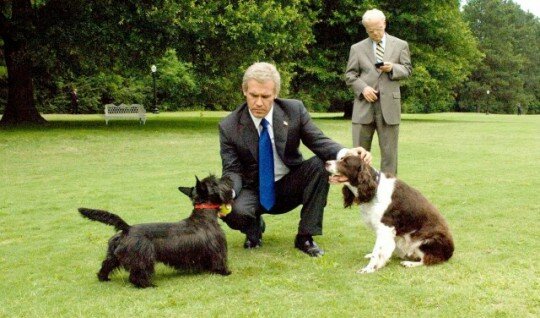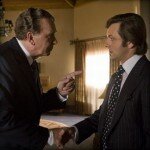I consider myself an apolitical person. My voting record is, shall we say, sketchy. There’s so much bullshit involved in the whole process that I can’t stand to see ordinary people drained of their character and droning platitudes in public. I don’t quite understand the Obama phenomenon for that reason, but I admire his obvious skill in making a frighteningly large percentage of the global population become enamoured with a lawyer.
But politics at the highest level often plays an important part in history – the world’s grandest soap opera – and that’s where it gets interesting. That’s why films like Frost/Nixon and All the President’s Men can be so riveting because of the fascinating true stories they are centred around. That’s why I’ll always be interested in seeing a film like W.

|
Oliver Stone barely succeeds in making his George W. Bush (Josh Brolin, inhabiting the role and probably harshly overlooked for some award nominations) a somewhat sympathetic and multidimensional character, which is quite remarkable under the circumstances. He’s depicted as well meaning and affable but simple, simplistic and out of his depth.
The problem is he’s not a particularly interesting person. His back-story, while important in understanding who he is and where he comes from, lacks a certain dynamism. As a result the film flitters between its more laboured moments and its intriguing moments, such as scenes with his political and eventually presidential father (James Cromwell).
The best scenes are when Bush is surrounded by his cabinet staff, some of whom fare better than others in their portrayals. In these scenes, they all try and persuade him of their agendas, sensing his malleable mind. This backfires after the WMD fiasco as they all try to search for someone to blame. Stone suggests that Bush’s erroneous trust of those around him ultimately destroys his legacy.
Verdict:
Stone spices things up with some interesting photography but the film is tonally muddled at times. Provocative moments being accompanied with twee music are jarring and W., though a competent film overall, occasionally loses its balance on the tightrope between humour and seriousness.















